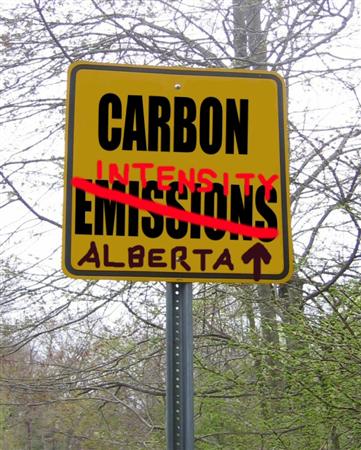The Carbon Trust: State Sponsored Greenwashing (With A Little Help From Greenpeace)
Posted by keith on 29th September 2008
I have a confession to make: about 18 months ago, when I was still part of the economic machine, I spent some time calculating the carbon footprint of the company I worked for. To help me, I used the guides provided by the Carbon Trust a, what I thought then, fairly reliable and objective agency of the UK Government working for, I thought at the time, reducing the overall carbon emissions of the UK.
How stupid was I?
In these times of economic downturn and the promise that the runaway consumer culture may be on a crash course in all sorts of ways (hooray!) this apparently earnest organisation turns out to be nothing more than a cheerleader for business growth. Take a look at the advert above or, if you dare, some of the other promotions. Superficially you might think that what they are saying is that, by reducing your energy consumption, you will improve the profitability of your existing business. In actual fact they are pushing something very bad indeed: business growth as an incentive for reducing emissions. A display advert of theirs says:
“Last year consumers bought £4.3bn worth of low carbon goods in the UK alone. Good news if you’re in the market for new customers”
Do you see what they’ve done? In effect they are not cutting emissions at all because all that is being done is allowing more wriggle-room for business to boom, while increasing the carbon intensity of the business – less carbon per monetary unit, but no less carbon overall.
You might think that this is a good thing: after all if business keeps growing then it’s better to reduce their impact. But that’s not the point at all – why should businesses grow at all? Profit is simply the result of excess consumption, which feeds further growth which leads to further consumption – profit drives the capital economy which actively discourages (nay, suppresses) any attempt to merely sustain or reduce consumption.
In March 2008, The Carbon Trust joined hands with HSBC, one of the largest banks in the world, to provide funds for renewable energy projects in the public sector; in other words a bank was allowed, through a government agency, to start driving funding for public sector projects while at the same time making themselves look like they were doing good. HSBC were given a great deal of power over public policy for a pittance (£18m).
It was so obvious that HSBC were greenwashing but stupid is as stupid does – I remember one great thinker saying (ha!) – which would explain why Greenpeace grabbed the bait with both hands and immediately clarified their position on private interference in public life:
“This is an excellent example of private finance delivering real emissions reductions through innovative partnerships. It also demonstrates that significant cost effective renewable energy potential exists at all levels rather than simply in industrial scale wind power, and that a viable business case can be made for this investment. Within the context of the UK’s demanding emissions reductions targets, we sincerely hope this is a sign of things to come.”
“Industrial”, “Hope”, “Innovative partnerships”, “Demanding emissions reduction targets”? Welcome to the corporate world of Greenpeace: and perhaps goodbye to a few Greenpeace subscription renewals…
Posted in Corporate Hypocrisy, Government Policies, NGO Hypocrisy, Public Sector Hypocrisy, Sponsorship | No Comments »













